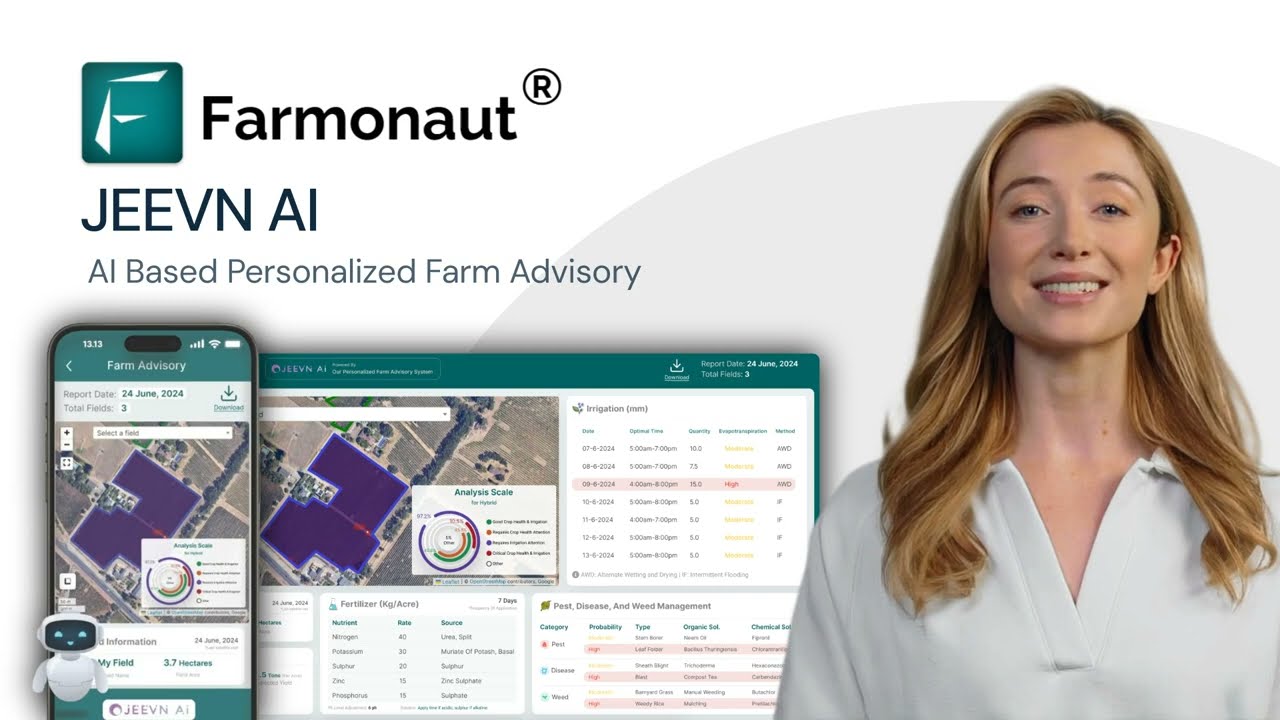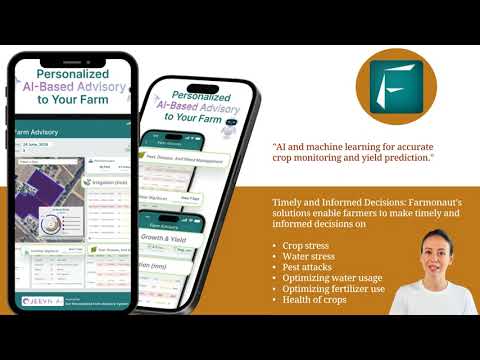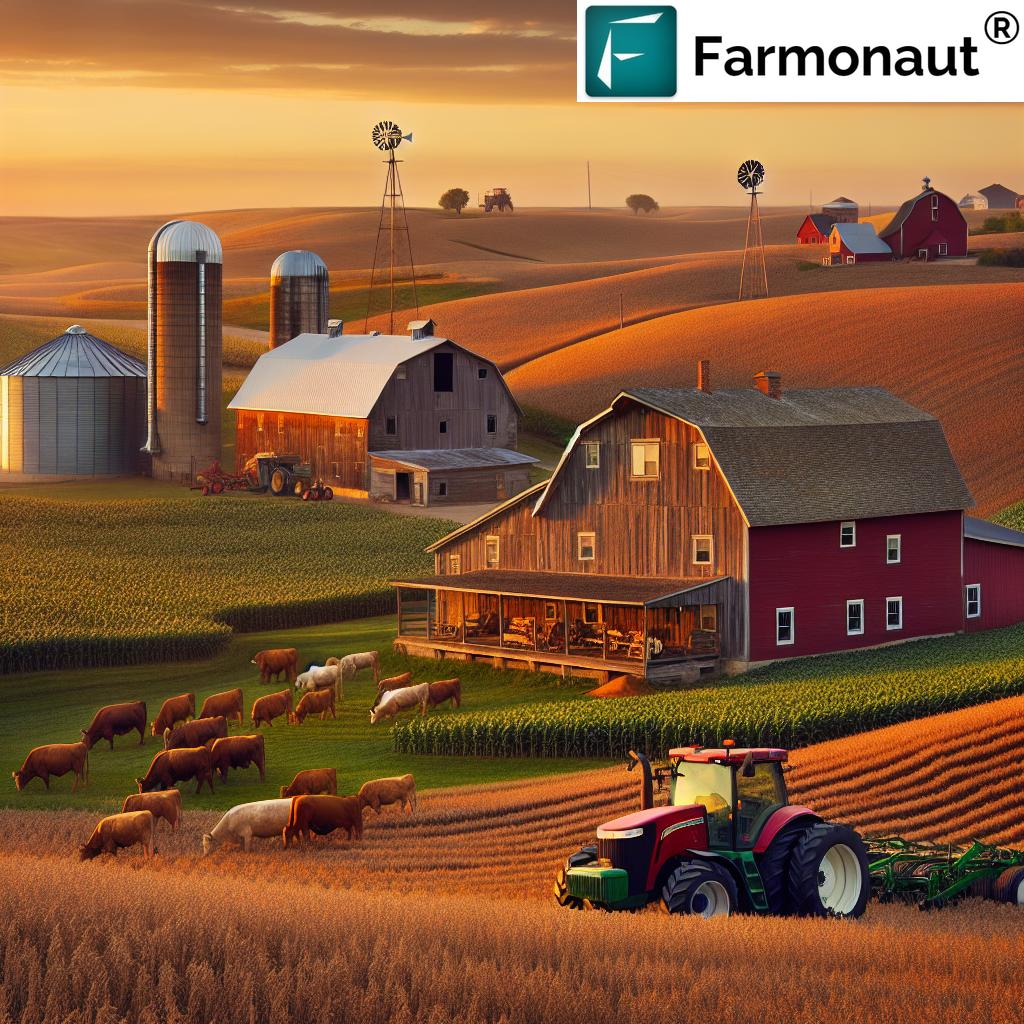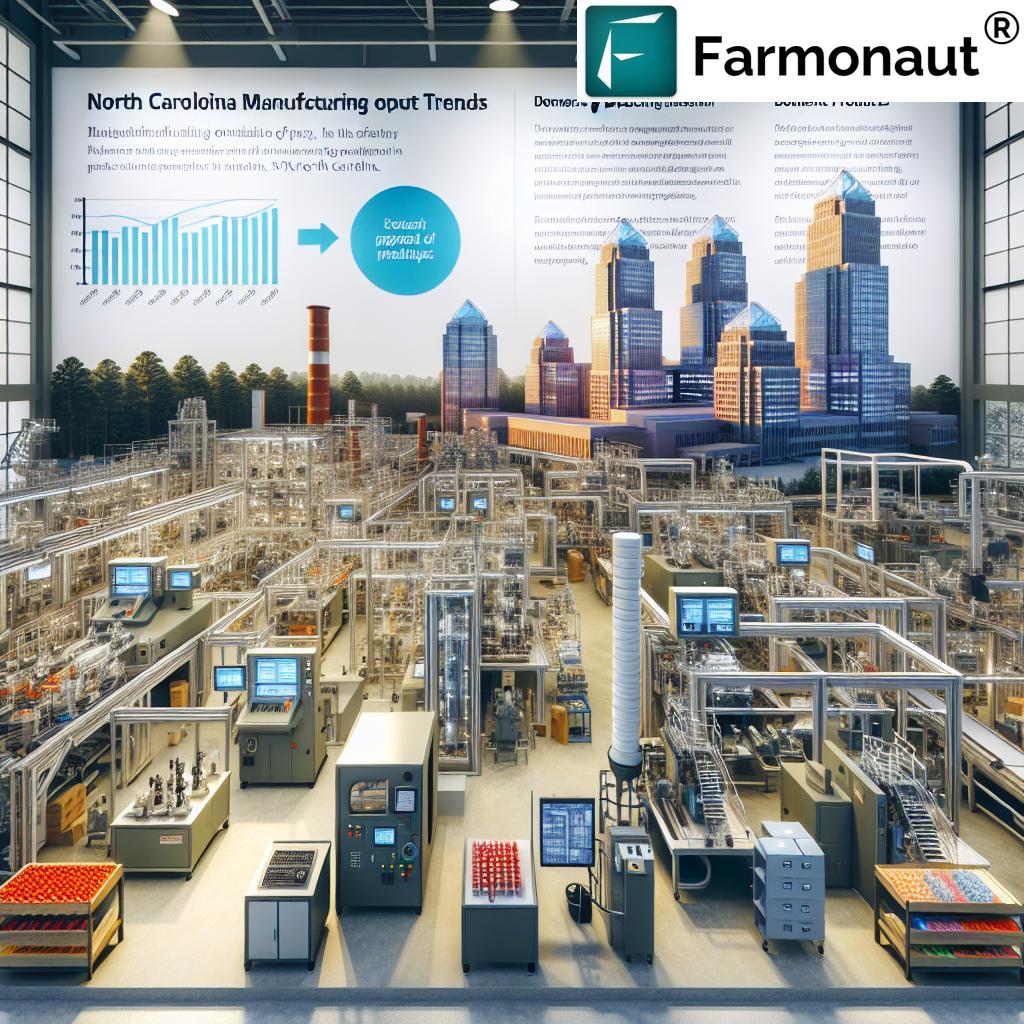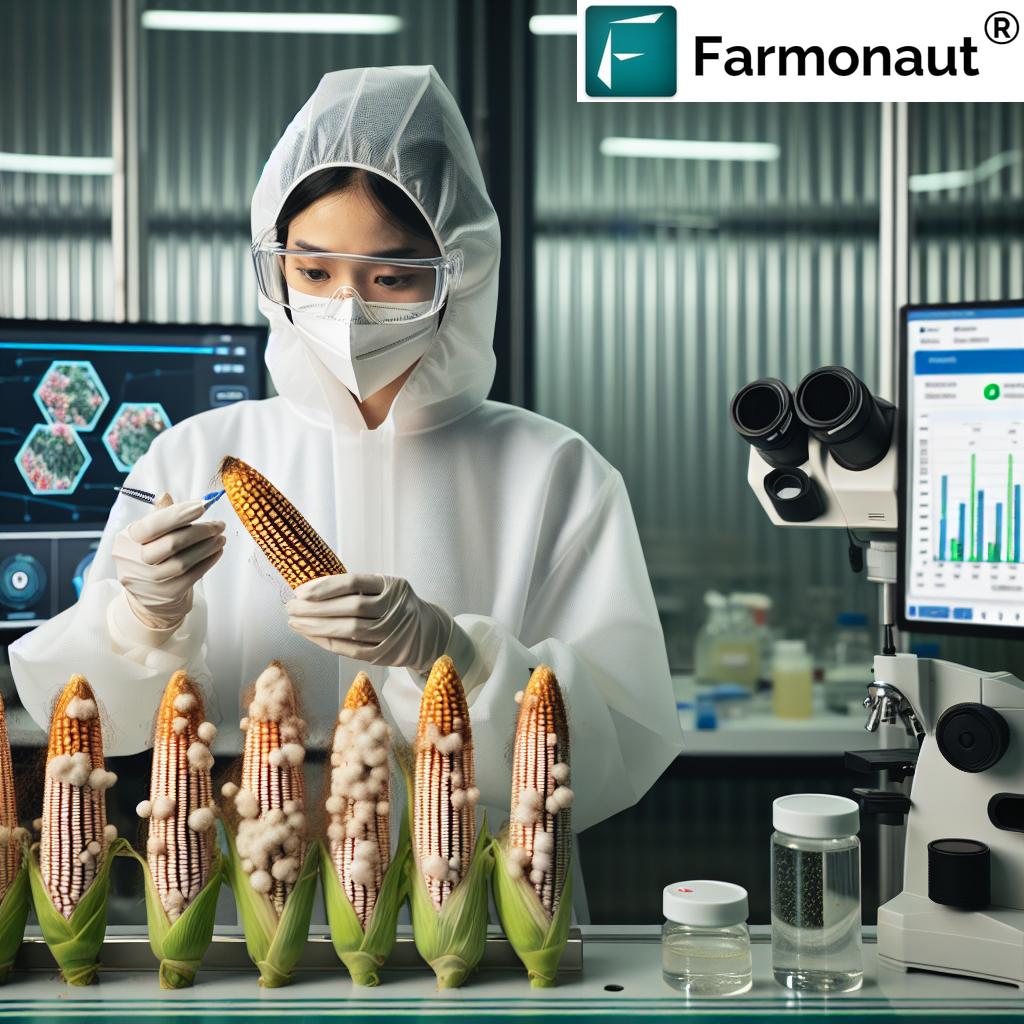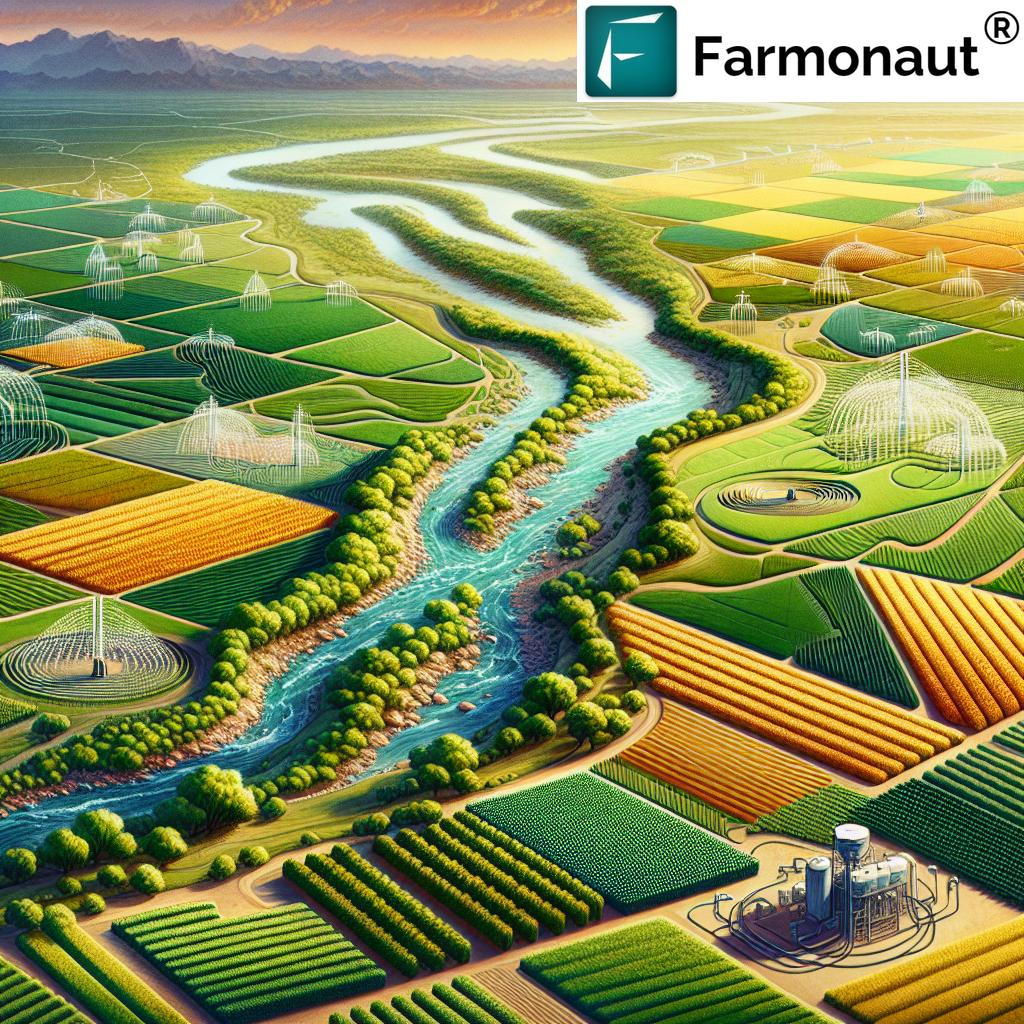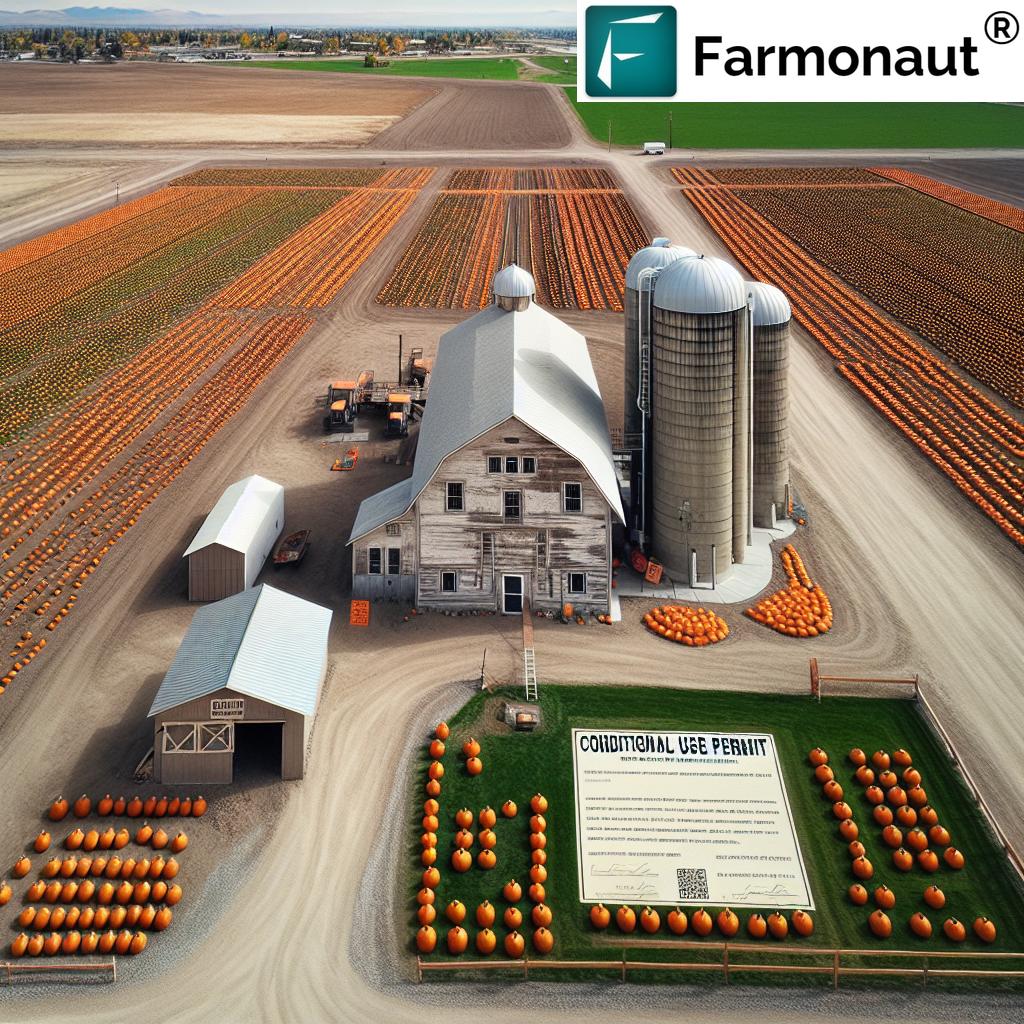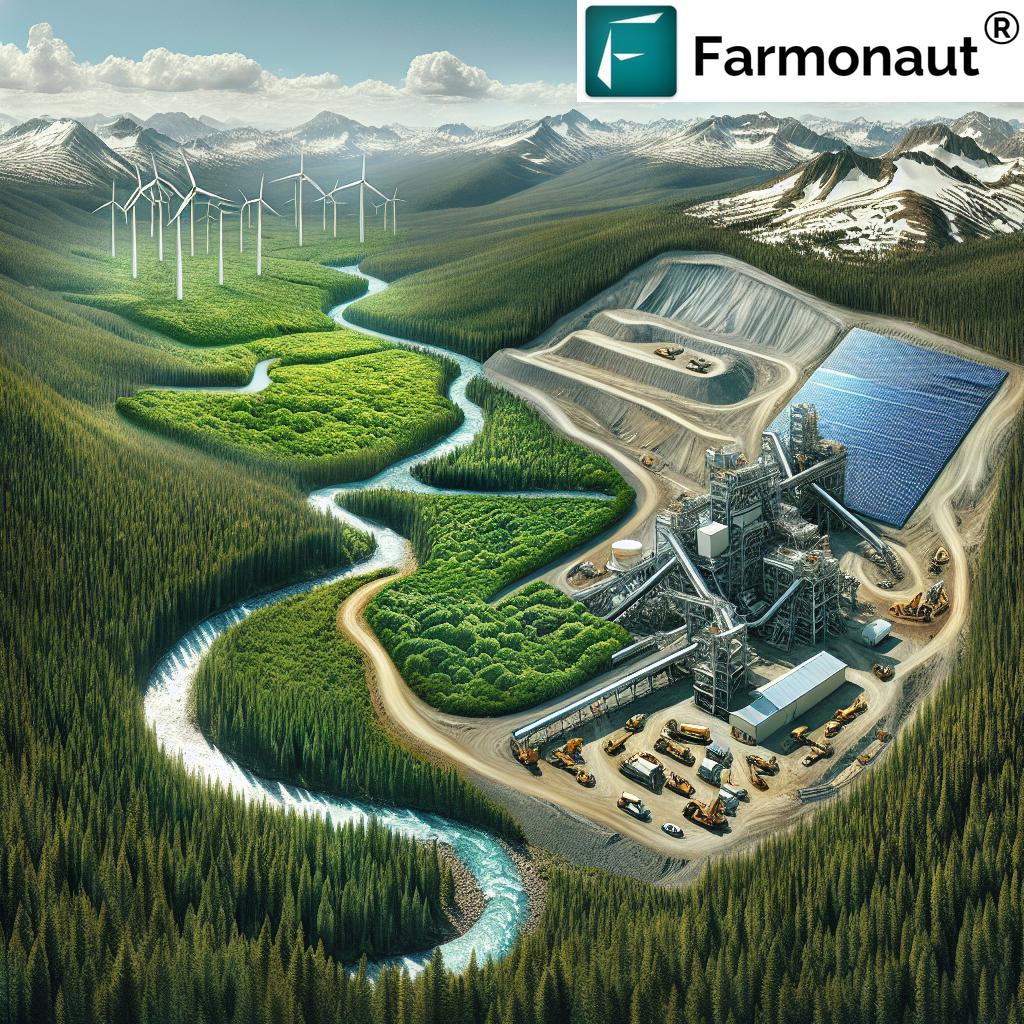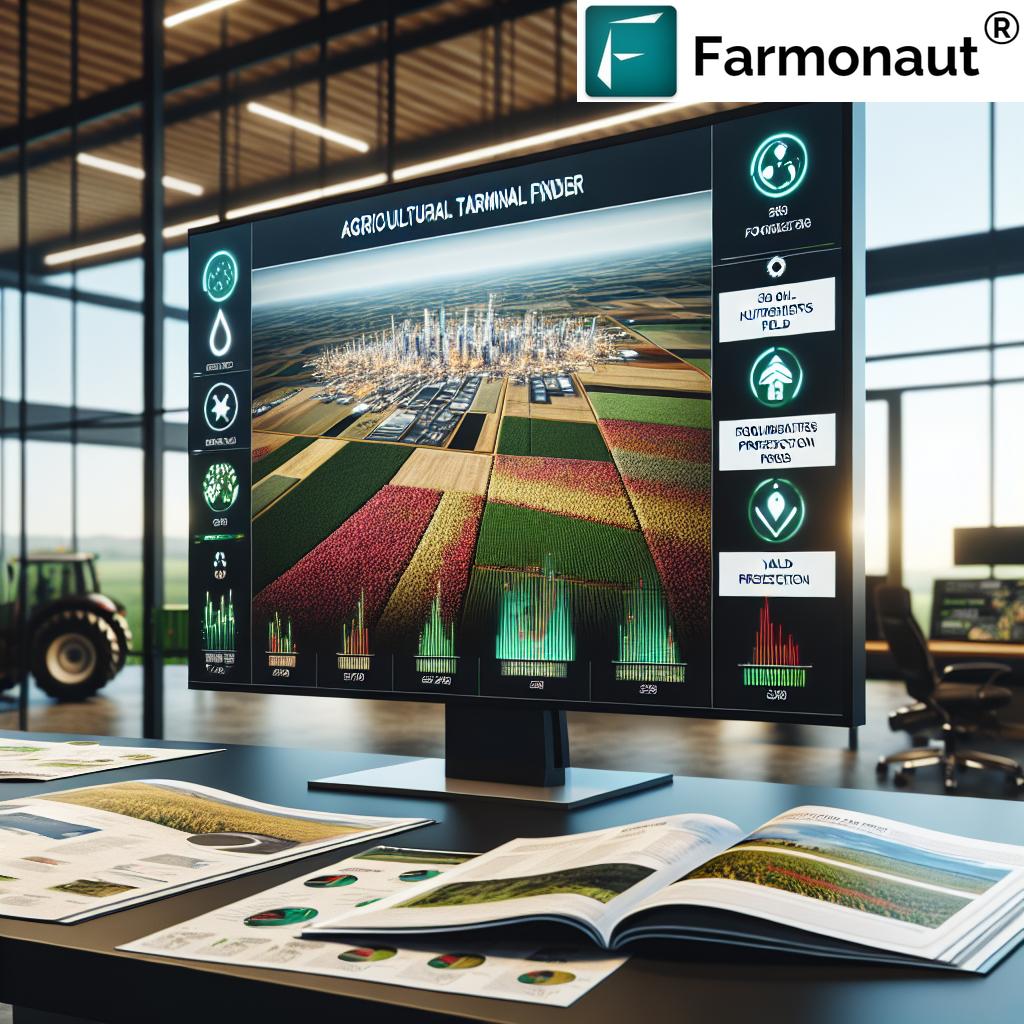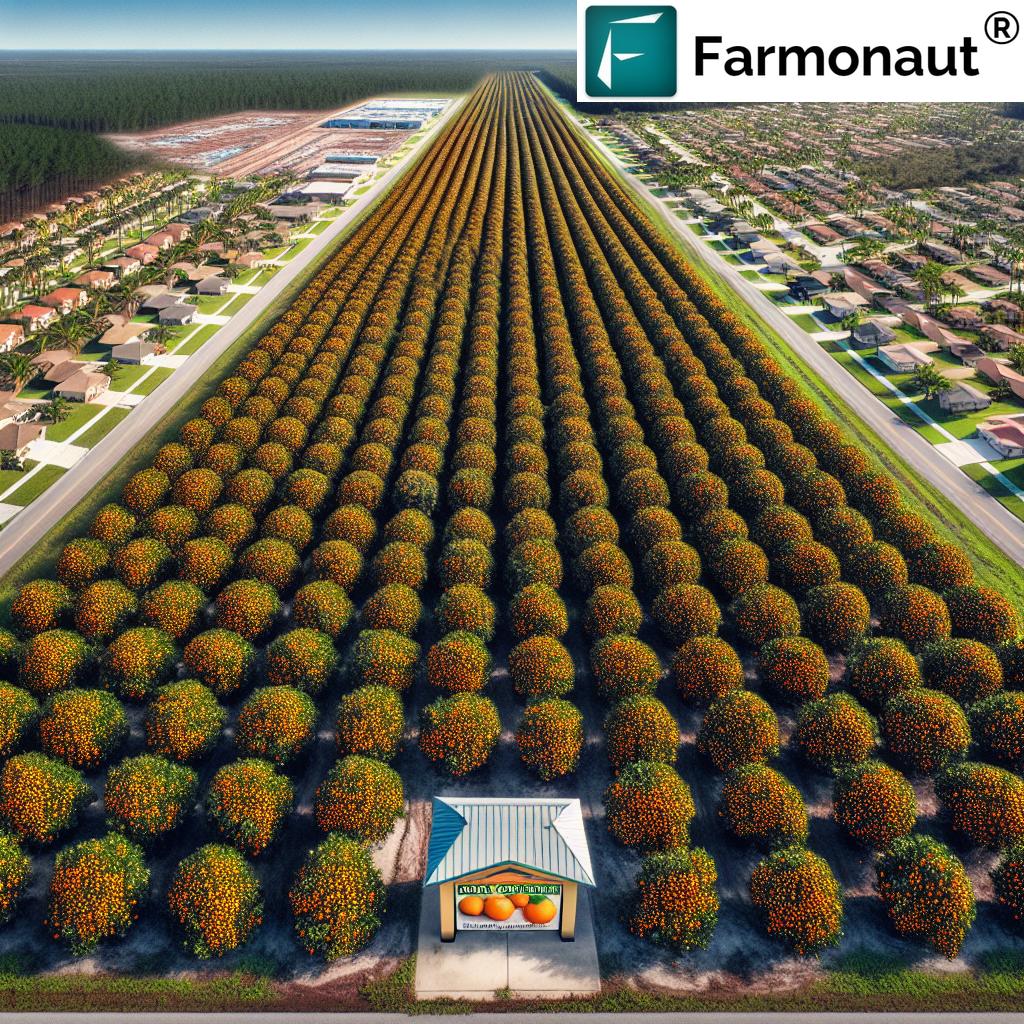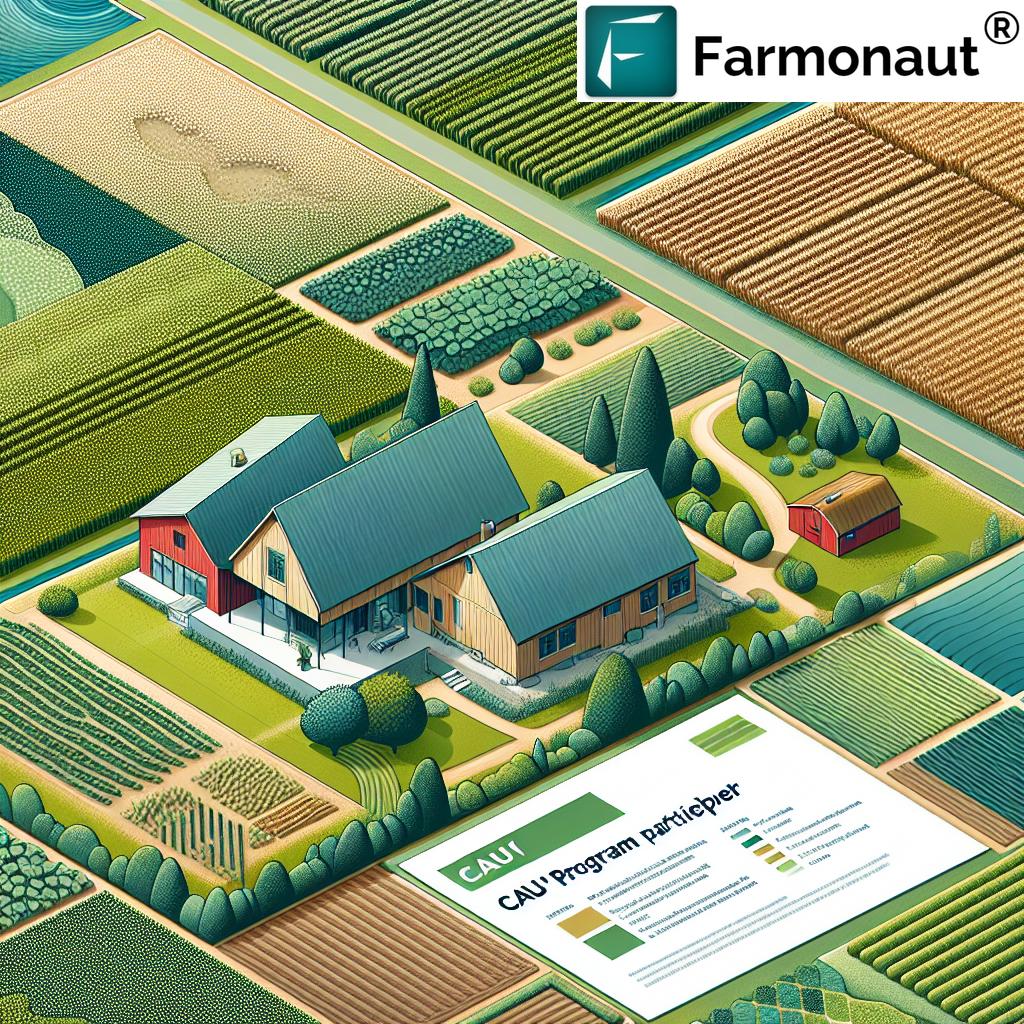Revolutionizing Texas Agriculture: How Innovative Ag Tech is Boosting Crop Yields and Sustainability
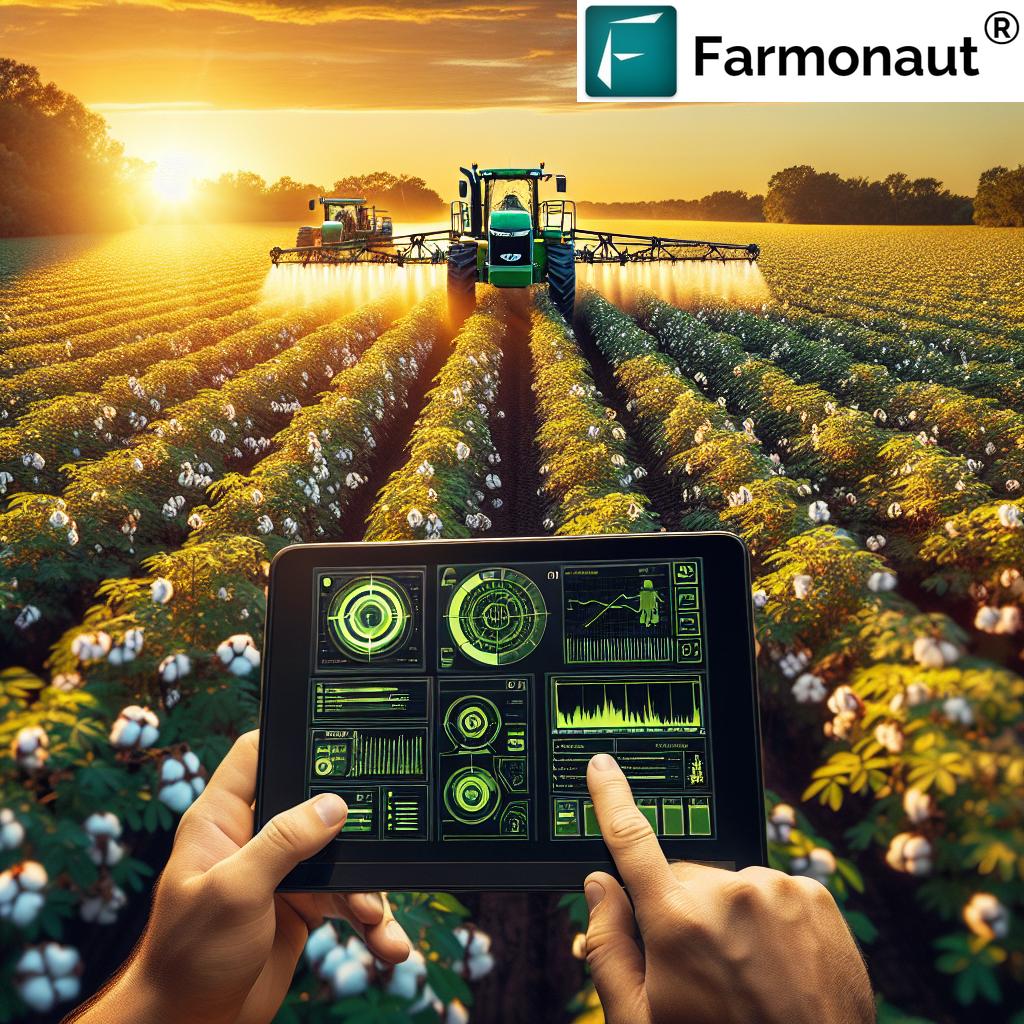
“GPS-equipped tractors and camera-enabled sprayers have increased weed detection efficiency by up to 95% in Texas farms.”
We are witnessing a remarkable transformation in the heart of Texas agriculture. The recent Mid-Plains Ag Expo in Plainview, Texas, has illuminated the pivotal role of advanced technology in modern farming. As we delve into the world of agricultural technology advancements, we’ll explore how these innovations are reshaping the landscape of farming, boosting crop yields, and paving the way for a more sustainable future.
The Dawn of a New Agricultural Era
In recent years, the agricultural industry has undergone a significant shift. Gone are the days when farmers relied solely on traditional methods and intuition. Today, we’re seeing a surge in the adoption of innovative agricultural solutions that are revolutionizing every aspect of farming. From precision agriculture techniques to sustainable farming practices, the face of agriculture is changing rapidly, and Texas is at the forefront of this revolution.
At the heart of this transformation is the integration of technology into farming practices. Modern crop management has evolved to include a wide array of high-tech farming equipment, software for tracking markets, and advanced tools for efficient pest control in farming. These ag tech innovations are not just improving productivity; they’re also addressing critical challenges such as rising costs and environmental sustainability.
Precision Agriculture: The Game Changer
One of the most significant advancements in agricultural technology is the rise of precision agriculture. This approach uses data-driven insights to optimize farming practices, resulting in more efficient use of resources and improved crop yields. Let’s break down some key components of precision agriculture:
- GPS-Equipped Tractors: These machines provide unprecedented accuracy in planting, spraying, and harvesting, minimizing overlap and reducing waste.
- Camera-Enabled Sprayers: By detecting weeds with pinpoint accuracy, these sprayers significantly reduce herbicide use while improving weed control.
- Soil Sensors: These devices provide real-time data on soil moisture, nutrient levels, and pH, allowing for more precise irrigation and fertilization.
The impact of these technologies on farming efficiency is substantial. For instance, GPS-guided tractors can reduce fuel consumption by up to 10% while increasing the accuracy of field operations.
Sustainable Farming Practices: A New Paradigm
Sustainability was a key focus at the Mid-Plains Ag Expo, reflecting a growing awareness of the need for environmentally responsible farming practices. Some of the sustainable farming practices highlighted include:
- Cover Crop Management: Utilizing cover crops to improve soil health, reduce erosion, and suppress weeds.
- Water Conservation: Implementing advanced irrigation systems that optimize water usage in crops like cotton and corn.
- Integrated Pest Management: Using a combination of biological controls and targeted pesticide application to minimize chemical use.
These practices not only benefit the environment but also contribute to long-term soil health and farm profitability. For example, proper cover crop management can lead to a 50% reduction in soil erosion and a 10-20% increase in water retention capacity.
The Role of AI and Machine Learning in Agriculture
Artificial Intelligence (AI) and Machine Learning are playing an increasingly important role in modern agriculture. These technologies are being used to:
- Predict weather patterns and optimize planting schedules
- Detect plant diseases early and recommend treatment options
- Analyze satellite imagery to assess crop health and predict yields
- Optimize supply chains and market predictions
By leveraging these technologies, farmers can make more informed decisions, reduce risks, and improve overall farm management. For instance, AI-powered crop monitoring systems can detect plant stress up to 10 days earlier than the human eye, allowing for timely interventions.
“Precision agriculture techniques showcased at the Texas expo can reduce water usage in cotton and corn crops by 30%.”
Comparative Analysis: Traditional vs. Tech-Enhanced Farming
| Agricultural Practice | Traditional Method | Tech-Enhanced Method | Efficiency Improvement (%) | Cost Reduction (%) |
|---|---|---|---|---|
| Weed Management | Manual removal, blanket spraying | Camera-enabled sprayers, AI detection | 80-95% | 30-50% |
| Irrigation | Fixed schedule, visual assessment | Soil moisture sensors, weather data integration | 40-60% | 20-35% |
| Pest Control | Calendar-based spraying | Integrated Pest Management, AI prediction | 50-70% | 25-40% |
| Soil Health Monitoring | Annual soil testing | Real-time sensors, satellite imaging | 70-90% | 15-30% |
| Yield Prediction | Historical data, visual estimation | AI analysis, satellite imagery, IoT sensors | 60-80% | 10-25% |
This table clearly illustrates the significant improvements in efficiency and cost reduction that tech-enhanced farming methods offer compared to traditional practices. The adoption of these innovative agricultural solutions is crucial for farmers looking to stay competitive in today’s rapidly evolving agricultural landscape.
Overcoming Challenges in Adoption
While the benefits of agricultural technology are clear, there are still challenges to widespread adoption. Some of the key issues discussed at the Mid-Plains Ag Expo include:
- Initial investment costs for new technology
- Learning curve associated with new systems
- Ensuring data privacy and security
- Integrating new technologies with existing farm equipment
To address these challenges, industry experts at the expo emphasized the importance of education, training programs, and financial support for farmers transitioning to tech-enhanced methods. Many highlighted the role of agricultural extension services in bridging the knowledge gap and facilitating technology adoption.
The Future of Farming: Embracing Innovation
As we look to the future, it’s clear that the agricultural industry will continue to evolve rapidly. Emerging technologies such as blockchain for supply chain traceability, drone technology for crop monitoring, and advanced robotics for harvesting are set to further transform farming practices.
At Farmonaut, we’re committed to being at the forefront of this agricultural revolution. Our satellite-based farm management solutions offer farmers access to cutting-edge technology at an affordable price point. By leveraging AI and machine learning, we provide real-time insights into crop health, weather patterns, and market trends, empowering farmers to make data-driven decisions.
The Economic Impact of Ag Tech
The adoption of agricultural technology advancements isn’t just about improving yields and sustainability; it’s also having a significant economic impact on the farming industry. Here are some key economic benefits:
- Cost Reduction: Precision agriculture techniques can lead to substantial savings in input costs such as fertilizers, pesticides, and water.
- Increased Profitability: Higher yields and better crop quality translate to improved market prices and overall profitability.
- Risk Mitigation: Advanced weather forecasting and crop monitoring tools help farmers make informed decisions, reducing the risk of crop failure.
- Market Access: Technology enables farmers to better track market trends and connect directly with buyers, potentially increasing their profit margins.
For example, a study conducted in the Texas High Plains region found that adopting precision irrigation techniques resulted in water savings of up to 20-30% while maintaining or even increasing crop yields. This not only conserves a precious resource but also significantly reduces irrigation costs for farmers.
The Role of Data in Modern Agriculture
Data is the lifeblood of modern agriculture. From soil sensors to satellite imagery, farmers now have access to an unprecedented amount of information about their farms. Here’s how data is revolutionizing farming:
- Predictive Analytics: By analyzing historical data and current conditions, farmers can predict crop yields, pest outbreaks, and optimal harvesting times.
- Resource Optimization: Data-driven insights allow for precise application of water, fertilizers, and pesticides, reducing waste and environmental impact.
- Farm Management Software: These tools help farmers track everything from equipment maintenance to financial records, streamlining operations and improving efficiency.
- Market Intelligence: Access to real-time market data helps farmers make informed decisions about when to sell their crops for maximum profit.
At Farmonaut, we understand the power of data in agriculture. Our platform integrates multiple data sources, including satellite imagery and weather forecasts, to provide farmers with actionable insights. By leveraging our API, developers and agribusinesses can also integrate these valuable data streams into their own applications and systems.
Sustainable Agriculture: A Necessity, Not a Choice
The focus on sustainable farming practices at the Mid-Plains Ag Expo reflects a growing recognition that sustainability is no longer optional in agriculture. Climate change, water scarcity, and soil degradation are pressing challenges that require innovative solutions. Here’s how technology is enabling more sustainable farming:
- Precision Agriculture: By applying inputs only where and when they’re needed, farmers can significantly reduce their environmental footprint.
- Water Management: Advanced irrigation systems and soil moisture sensors help conserve water, a critical resource in drought-prone regions like Texas.
- Soil Health: Technologies that monitor soil health allow farmers to implement practices that improve soil structure and increase carbon sequestration.
- Renewable Energy: Many farms are integrating solar and wind power to reduce their reliance on fossil fuels.
By embracing these sustainable practices, farmers are not only protecting the environment but also ensuring the long-term viability of their operations. At Farmonaut, we’re committed to supporting sustainable agriculture through our technology solutions, helping farmers optimize their resource use and minimize their environmental impact.
The Human Element: Farmers as Tech-Savvy Entrepreneurs
While technology is transforming agriculture, it’s important to remember that farmers themselves are at the heart of this revolution. The modern farmer is evolving into a tech-savvy entrepreneur, balancing traditional agricultural knowledge with cutting-edge technology skills. Here’s how farmers are adapting:
- Continuous Learning: Farmers are actively seeking out opportunities to learn about new technologies and best practices.
- Data-Driven Decision Making: Instead of relying solely on intuition, farmers are increasingly using data to inform their decisions.
- Collaboration: Farmers are forming networks to share knowledge and experiences with new technologies.
- Entrepreneurship: Many farmers are diversifying their operations, using technology to explore new revenue streams and market opportunities.
This shift in mindset is crucial for the successful adoption of agricultural technology. At Farmonaut, we recognize the importance of supporting farmers through this transition. Our user-friendly platform and comprehensive API Developer Docs are designed to empower farmers, regardless of their technical background.
The Road Ahead: Challenges and Opportunities
As we look to the future of agriculture in Texas and beyond, it’s clear that technology will play an increasingly vital role. However, there are still challenges to overcome:
- Connectivity: Reliable internet access in rural areas remains a hurdle for widespread tech adoption.
- Data Standardization: As more technologies emerge, there’s a need for standardized data formats to ensure interoperability.
- Regulatory Landscape: Policies and regulations need to keep pace with technological advancements in agriculture.
- Workforce Development: There’s a growing need for skilled professionals who understand both agriculture and technology.
Despite these challenges, the opportunities are immense. From vertical farming to blockchain-enabled supply chains, the future of agriculture is ripe with potential for innovation and growth.
Conclusion: Embracing the Agricultural Revolution
The Mid-Plains Ag Expo in Plainview, Texas, has showcased the transformative power of technology in agriculture. From precision farming techniques to sustainable practices, innovative agricultural solutions are reshaping the industry, boosting crop yields, and promoting sustainability.
As we’ve explored throughout this article, the adoption of agricultural technology advancements is not just about staying competitive; it’s about ensuring the long-term viability of farming in an increasingly challenging environment. By embracing these innovations, farmers can reduce costs, increase efficiency, and contribute to a more sustainable future for agriculture.
At Farmonaut, we’re proud to be part of this agricultural revolution. Our satellite-based farm management solutions are designed to make precision agriculture accessible and affordable for farmers of all sizes. We invite you to join us in this exciting journey towards a more efficient, productive, and sustainable agricultural future.
Ready to revolutionize your farming practices? Explore Farmonaut’s innovative solutions today and take the first step towards a more productive and sustainable future in agriculture.
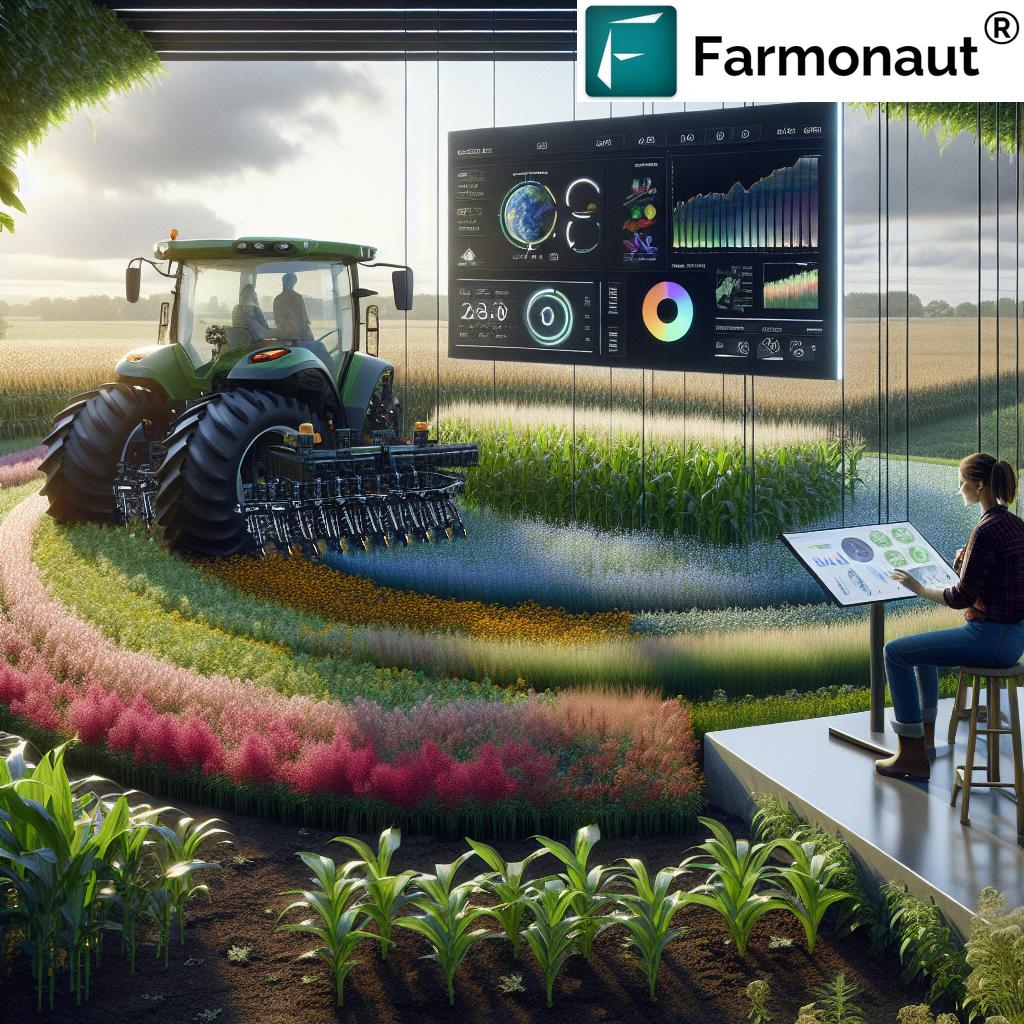
Frequently Asked Questions (FAQ)
- What is precision agriculture?
Precision agriculture is a farming management concept that uses technology to observe, measure, and respond to variability in crops. It aims to optimize returns on inputs while preserving resources. - How does GPS technology improve farming?
GPS technology in farming enables precise navigation of farm equipment, accurate planting and harvesting, and targeted application of fertilizers and pesticides, reducing waste and increasing efficiency. - What are the benefits of using satellite imagery in agriculture?
Satellite imagery provides farmers with valuable data on crop health, soil moisture, and field conditions, allowing for timely interventions and informed decision-making. - How does AI contribute to sustainable farming practices?
AI helps in predicting weather patterns, optimizing resource use, detecting plant diseases early, and providing personalized recommendations for crop management, all contributing to more sustainable farming practices. - What is the role of blockchain in agriculture?
Blockchain technology in agriculture enhances supply chain transparency, improves traceability of food products, and can help in verifying sustainable farming practices.
Earn With Farmonaut: Affiliate Program
Earn 20% recurring commission with Farmonaut’s affiliate program by sharing your promo code and helping farmers save 10%. Onboard 10 Elite farmers monthly to earn a minimum of $148,000 annually—start now and grow your income!
Farmonaut Subscriptions





